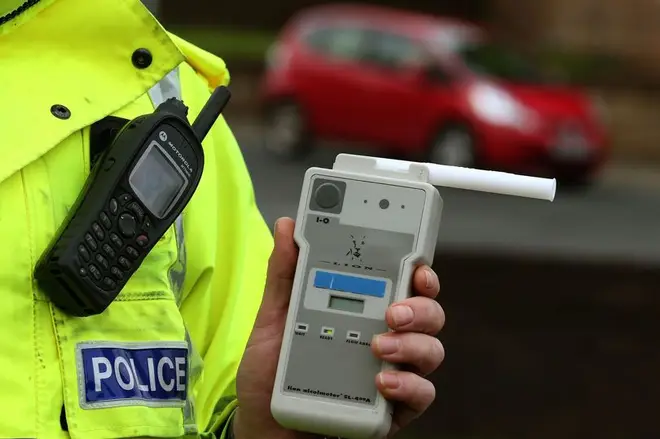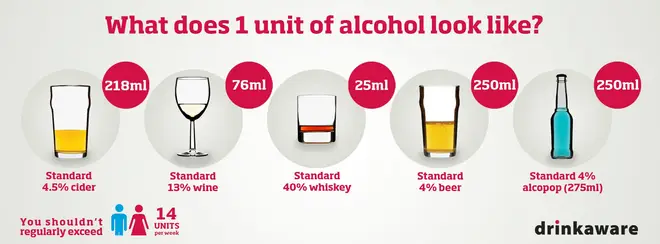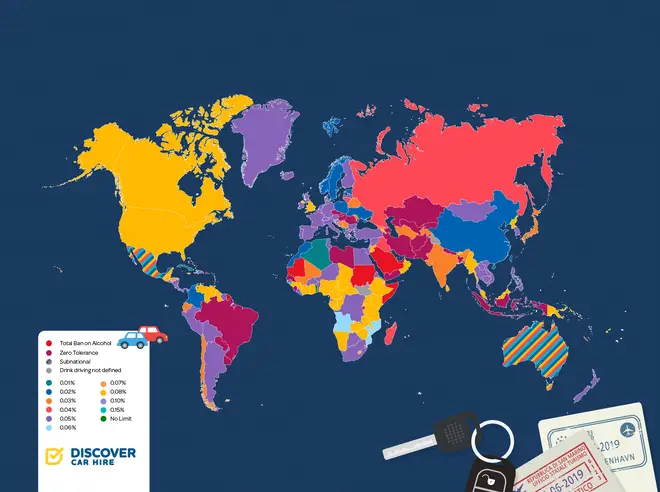Drink-driving laws abroad: do you know your limits?
23 June 2019, 15:03 | Updated: 23 June 2019, 16:15
It’s an adage that has been drilled into us for years – don’t drink and drive. Yet many people still do, assuming they will be fine with just the one before driving home.

However, drinking alcohol in any quantity impairs the ability to drive, and given that the amount somebody can drink and still be under the legal limit varies per person – weight, age, sex, metabolism, what you’ve eaten and even stress levels all being factors – it becomes almost impossible for people to judge how much they can (or should not) drink before getting back behind the wheel.

In England and Wales, the alcohol limit for drivers is 80 milligrammes of alcohol per 100 millilitres of blood, 35 microgrammes per 100 millilitres of breath or 107 milligrammes per 100 millilitres of urine. That tends to be the equivalent of two pints of normal strength beer for a man, or a large glass of average strength wine for a woman.

However, anyone crossing the border in Scotland should be aware. Since 2014, the limit was reduced to 50 milligrammes of alcohol in every 100 millilitres of blood, with the breath alcohol equivalent reduced to 22 microgrammes of alcohol per 100 millilitres of breath. So that means you could be driving perfectly legally in England, but fall afoul of the law north of the border.
Apart from not drinking, which is by far the safest way to drive, people should therefore do their research before buckling up, especially if looking to hire a car on holiday or take a road trip – making sure the holiday is one to remember for all the right reasons.

To help navigate through the mire of legal confusion, Discovercarhire.com has produced a handy map to show at-a-glance what the alcohol limits are for each country, based on blood alcohol concentration (BAC). So if England and Wales’ limit is 80 milligrammes of alcohol per 100 millilitres of blood, this is 0.08% BAC. So it’s important to read up about the limit in the country you’re visiting, especially if you’re looking to drive through multiple countries, as this can also get you into hot water – with limits varying widely, along with corresponding punishments.
For example, much of western and central Europe has a limit of 0.05%. However, while perfectly legal in Germany, cross the border into Poland and there is a lower limit of 0.02% – and also a stricter punishment of two years in prison. Or get caught in Malaysia, and not only could you be landed with a jail sentence – your spouse could too, even if they weren’t in the car at the time.
Even if you ‘feel’ sober if you’ve been drinking the night before you could still be over the limit. Use our quick guide to ensure you keep yourself and everyone else on the road safe: https://t.co/fL8jPBP6bf#roadsafety #alcohol #drinkdriving #DUI pic.twitter.com/ZE6NZf2CZB
— drinkaware (@Drinkaware) June 22, 2019
There are also a number of countries who have a zero tolerance approach, where it’s illegal to have any alcohol detected in your blood. So bear this in mind when touring countries such as the Gulf states, even though alcohol may be available in the hotels and resorts. However on the other extreme, nations such as Barbados do not have a limit whatsoever – although there still is a law for driving without due care and attention.
It’s also important to do your research if you feel you may fall into a specific category. If driving in the USA, while BAC limits are usually standard, some states operate different laws for commercial drivers and under 21s, some of which are a zero tolerance approach. Meanwhile, caution should be advised in countries such as Mexico – where some states have a lower BAC limit than others.
So along with remembering your toothbrush and passport, checking a country’s drink driving laws should be on your to-do list before you visit. Although, it will always be much easier and safer to not drink at all before taking a trip on the road.






















